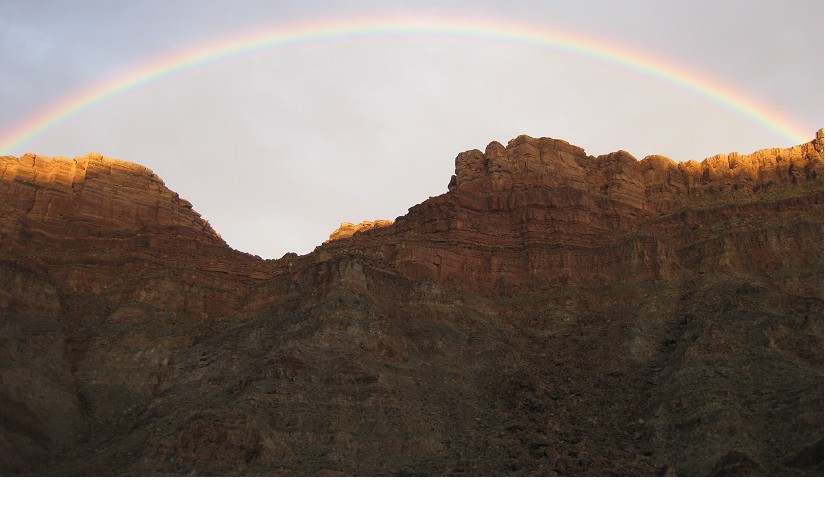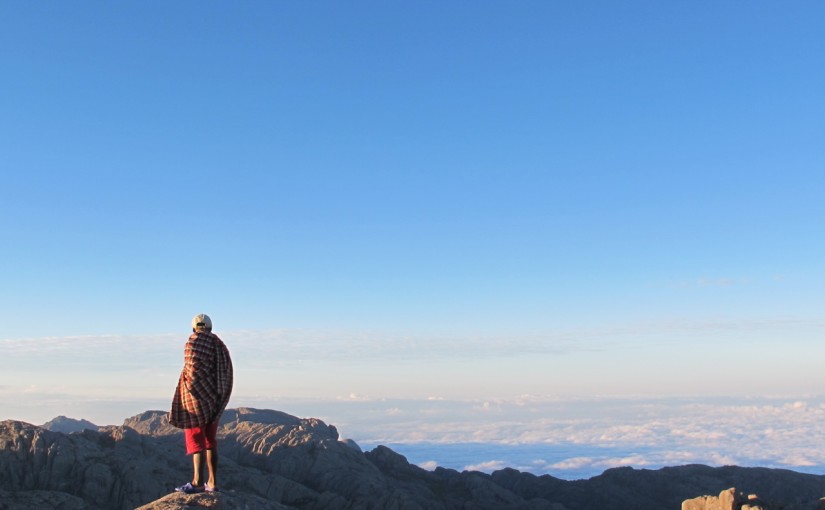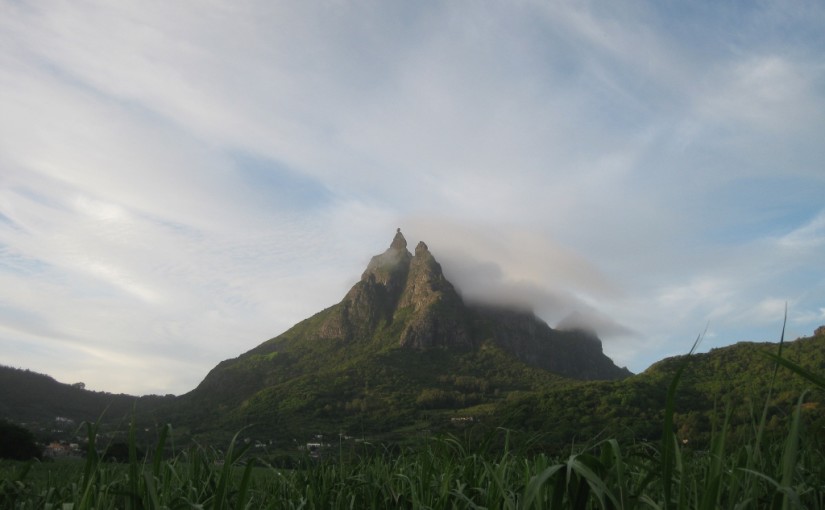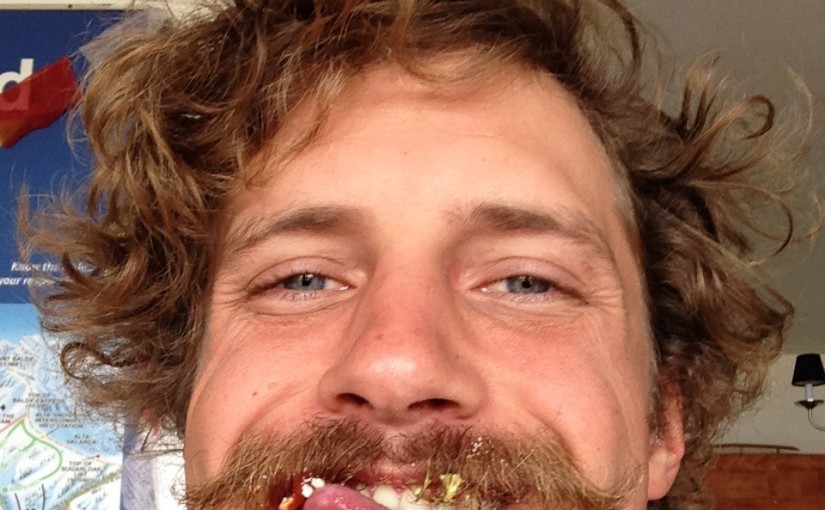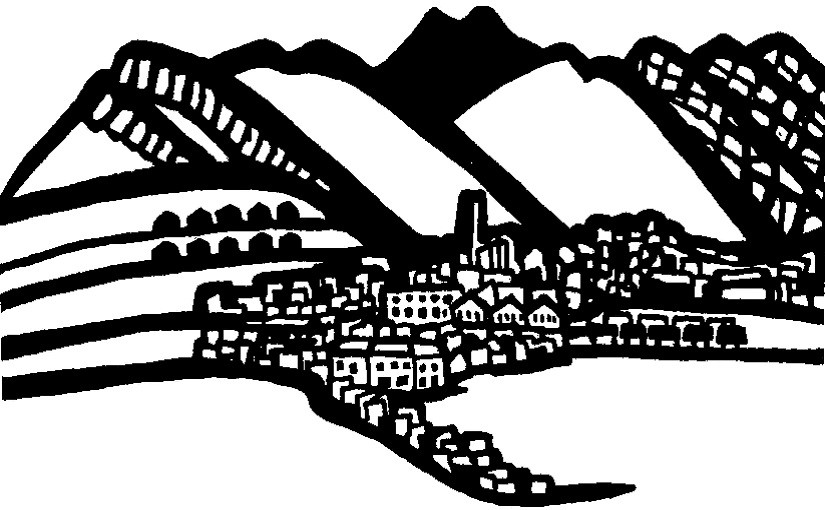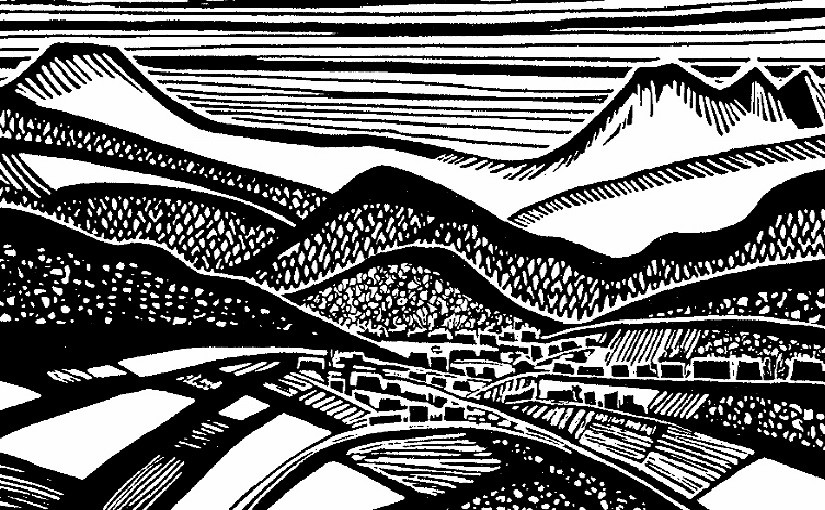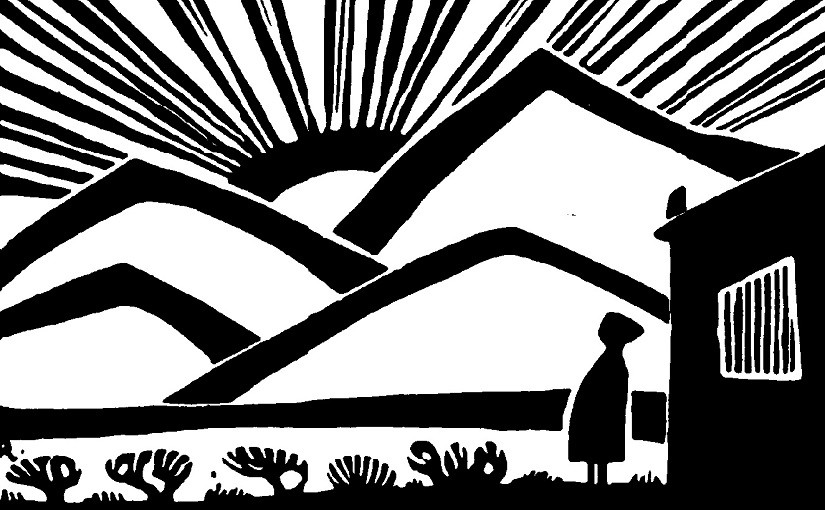At the end of November I had been out of work for a while and as much as I would like to use my outsized brain to trap or spear animals, to hew a home out of the forest, to break stallions, or to cultivate a field, I was forced to accept that this was not a realistic possibility at this juncture in my life. I got a call from a friend asking if I wanted to do some demolition work for a few weeks here in Brooklyn. I impulsively answered, ‘Yes.’
After moving to New York from Guatemala I had been doing a lot of thinking and I felt a little unstable, like I was on the verge of something. My mind did sommersalts and wove itself into knots; it vomited forth and then became constipated. It is just what my brain does sometimes. It isn’t always clear what has emerged from turmoil such as this, but I came up with something and wrote it down. Here is an account of breaking down both physical and theoretical walls and finding something beautiful in the space that was left.
 The strangeness of New York and its complexity was reflected in the job itself: I worked with a Croatian who has been here five years named Mate (accent on the e) and a Muslim from Burkina Faso named Ibrahim who had been in the country for less than a year. Mate lived in Queens, had two kids and a wife who was an English teacher. Ibra, as I took to calling him, was younger and was working to make money for his family in Burkina Faso. He was a married man and was saving to bring his wife over someday. Ibra had no papers and Mate had just received his green card. I amused myself by thinking of myself as an indigenous immigrant.
The strangeness of New York and its complexity was reflected in the job itself: I worked with a Croatian who has been here five years named Mate (accent on the e) and a Muslim from Burkina Faso named Ibrahim who had been in the country for less than a year. Mate lived in Queens, had two kids and a wife who was an English teacher. Ibra, as I took to calling him, was younger and was working to make money for his family in Burkina Faso. He was a married man and was saving to bring his wife over someday. Ibra had no papers and Mate had just received his green card. I amused myself by thinking of myself as an indigenous immigrant.
 Our task was to demolish a four story brownstone, meaning that we were to gut out the interior down to the structure. I initially walked into the house wanting to decry the waste of our modern obsession with continually reinventing ourselves, but the reality that I came to see, was that the house was a shithole.
Our task was to demolish a four story brownstone, meaning that we were to gut out the interior down to the structure. I initially walked into the house wanting to decry the waste of our modern obsession with continually reinventing ourselves, but the reality that I came to see, was that the house was a shithole.
 On the first day, I grabbed a crowbar and a sledge hammer and set to work without much pomp or circumstance. I swung the sledge and softened the walls and then dismantled them with the crowbar. The drywall shattered, cracked, tore, pulverized. The wood cracked, splintered, screamed as it twisted and clattered dryly as it tumbled to the floor. It was not long before I was several feet deep in debris, panting, coughing in a cloud of dust with wires dangling in my face.
On the first day, I grabbed a crowbar and a sledge hammer and set to work without much pomp or circumstance. I swung the sledge and softened the walls and then dismantled them with the crowbar. The drywall shattered, cracked, tore, pulverized. The wood cracked, splintered, screamed as it twisted and clattered dryly as it tumbled to the floor. It was not long before I was several feet deep in debris, panting, coughing in a cloud of dust with wires dangling in my face.
 As I pulled down the first of many ceilings, huge chunks of drywall shattered on my head and tumbled to the ground. Construction refuse, newspapers, and panes of glass all rained down upon me. A strange black soot that had accumulated over the past hundred years billowed from the ground after cascading down on my face and through my hair. Some chunks flew out the open window as I swung, tore, ripped, mangled, and mashed. I poked my head out the window and feigned concern for any onlookers, but only once.
As I pulled down the first of many ceilings, huge chunks of drywall shattered on my head and tumbled to the ground. Construction refuse, newspapers, and panes of glass all rained down upon me. A strange black soot that had accumulated over the past hundred years billowed from the ground after cascading down on my face and through my hair. Some chunks flew out the open window as I swung, tore, ripped, mangled, and mashed. I poked my head out the window and feigned concern for any onlookers, but only once.
I ended the first day blackfaced. Ibra actually became whiter. We laughed at each other. The shower at home ran black and my eyes burned and my hands shook in exhaustion.
As the days passed, we worked our way down from the top floor, breaking everything and then hauling it down to the truck that we fought to park. We loaded buckets full of plaster, hauled them down the  stairs, and loaded them into the truck. We worked six days a week. 8 to 4:30 for five weeks. I initially thought about how much I liked work like this as I didn’t have to think. I just had to use my body and whittle the hours away. For better or worse, this left plenty of time to think about other things.
stairs, and loaded them into the truck. We worked six days a week. 8 to 4:30 for five weeks. I initially thought about how much I liked work like this as I didn’t have to think. I just had to use my body and whittle the hours away. For better or worse, this left plenty of time to think about other things.
Here are some things that I remember:
Ibra constantly waved his cigarette in the air, using his hands to gesture, while indiscriminately intermingling French and English. On a seemingly hourly basis he stopped to chain smoke and lecture me on the perils of working too hard. We eventually warmed up to one another and I found myself intentionally prolonging lunch each day by asking questions so that I could sit in the warmth of the sun  that streamed in through the window for a few minutes longer. Mate frequently recounted stories of atrocities from the wars the ravaged the Balkans in the 1990’s. The deaths of his friends at the hands of snipers, his sister nearly dying from a missle strike, ethnic cleansing, the massacre at Srebrenica.
that streamed in through the window for a few minutes longer. Mate frequently recounted stories of atrocities from the wars the ravaged the Balkans in the 1990’s. The deaths of his friends at the hands of snipers, his sister nearly dying from a missle strike, ethnic cleansing, the massacre at Srebrenica.
‘Are you going to bring your wife over here?’ I ask Ibra in slow, patronizing English.
‘If I get papers.’
‘How do you get papers?’
‘I don’t know. There are ways.’
Mate spoke up, ‘Most of my friends, immigrants from Croatia and Poland, got their papers through marriage. It is incredibly expensive now though. When I arrived five years ago you could pay a woman 4100 dollars, but now it is up to 12,000 dollars.’
‘So this is common?’
‘Oh yeah. It is good business. One person makes money and the other one gets papers.’
‘You have to find the right girl. I know one girl that my friend married. Always calling for money. Always want money. She is no good to this man,’ Ibra countered.
‘Some people are better than others. My friend has married three different girls for money. He went back to visit Serbia and fell in love with a girl. He was already married though and had to stay with that girl. So he paid his friend to fly to Serbia, marry the girl, and then come back with her.’
‘He paid his friend to marry a girl he was in love with?’
‘Yeah! And bought him a ticket home!’
Another day Irba and I were looking out the window and I saw a man feeding his chickens food scraps.
‘Look….chickens.’ I pointed at them.
‘You know…Those are the first ones I have seen here in America. The first chickens.’
‘Really?’
‘Yeah. You only see dead ones. The meat, never the chickens.’
 ‘There are some here. My girlfriend has 28 of them.’
‘There are some here. My girlfriend has 28 of them.’
‘Now that is a good girl.’ He said this earnestly, but we both laughed.
One day I sat in a patio chair in the half demolished living room of the first floor, transfixed by water cascading out of the ceiling and spattering upon the dusty floor as Mate disconnected radiators.
Sometimes, for fun, I used the sledge like a battering ram or swung the crowbar like a baseball bat.
One time I stuck my head through a hole that I punched in the wall and twisted it like Jack Torrence.
A dog pooped directly behind the gate of the truck. I stepped in it, Ibra stepped in it, I smeared the bottom of a trashcan through it and then Mate touched it with his gloved hands, I rolled the handcart through it. I dumped a small amount of drywall dust on it with the hopes that it would work like cat litter. I then giggled as Ibra saw me do this, thought it was a good idea and got carried away; he dumped his buckets all over the pavement making a massive mess.
Most days our banter faded as we got into a taxing rhythm of work. In these moments I got unadulterated solitude to focus pointedly on my existence.
 One day I leaned over and tilted my face to look in the mirror of the truck and was greeted by two red embers staring back at me from a bearded and lined black face. It precipitated a strange reaction, the reagents of which were being stockpiled over previous weeks: Who am I? What are you doing? Are you crazy? What is all of this about? Am I a meth head and I don’t even know it? What am I going to do with the rest of my life?
One day I leaned over and tilted my face to look in the mirror of the truck and was greeted by two red embers staring back at me from a bearded and lined black face. It precipitated a strange reaction, the reagents of which were being stockpiled over previous weeks: Who am I? What are you doing? Are you crazy? What is all of this about? Am I a meth head and I don’t even know it? What am I going to do with the rest of my life?
 Each day I looked on as well-heeled couples leisurely strolled by and young people sat on stoops smoking cigarettes. Often they glanced at me and then averted their eyes. Who are these people? Are they smarter than me? Do they earn a fortune staring at computer screens? Manipulating numbers? Selling more products that no one actually needs by pandering to their innermost dreams and hopes?
Each day I looked on as well-heeled couples leisurely strolled by and young people sat on stoops smoking cigarettes. Often they glanced at me and then averted their eyes. Who are these people? Are they smarter than me? Do they earn a fortune staring at computer screens? Manipulating numbers? Selling more products that no one actually needs by pandering to their innermost dreams and hopes?
Pangs of bitterness coursed through me often. My thoughts whirled around myself: I have many talents and skills, yet this is how I was spending my days at age 29: demolishing the interior of a house on an illegal jobsite in unregulated conditions, sucking in my air through a mask tinged gray with dust as I hauled buckets of trash all day? Look at you now. Did I actually have any talents or skills? Am I just an idiot who cannot recognize his station in life? Like a goose that thinks it is a swan? Everyone else seemed so relaxed, moneyed, and secure.
I found myself despising New York for all its glaring inequity and crassness. I cursed myself for coming here, for deliberately throwing myself into what is the antithesis of my values in many ways. I felt stupid.
My rational brain frequently structured thoughts like this: If I was more _______, I would __________.
I wrote this down: ‘This building is a bombed out hell.’
 Still, I tried to lose myself in my work. I used phrases that angry old men used to describe what I was doing like ‘putting my nose to the grindstone’ or ‘keeping my head down and working through the winter.’ I would also try to release the inner turmoil physically: I would I run at a wall and kick my boot through, trying my best to relish the explosion of wood and brittle plaster that resounds on the floor. I eviscerated the snaking conduit arteries within the walls. If you can imagine, the joy even evaporated from these antics.
Still, I tried to lose myself in my work. I used phrases that angry old men used to describe what I was doing like ‘putting my nose to the grindstone’ or ‘keeping my head down and working through the winter.’ I would also try to release the inner turmoil physically: I would I run at a wall and kick my boot through, trying my best to relish the explosion of wood and brittle plaster that resounds on the floor. I eviscerated the snaking conduit arteries within the walls. If you can imagine, the joy even evaporated from these antics.
On cold days, I had to work even harder just to stay warm. I mused that maybe this was a forced labor scheme learned from my boss’s previous life in the former Yugoslavia.
The plaster covered brick walls were the worst. I broke them apart by starting a small necrotic ulcer in the center and assiduously expanding it outward with rhythmic hammer swings.
I found a slip of paper in my shirt pocket that I wrote one night while I was drunk that said the following:
 ‘Mate worked with several Natives in Canada in forestry. Many of them had spent time in prison and would unabashedly tell him about murders that they had committed or other strange stories. One day in prison, one of the men recounted, another inmate returned from a visit with friends or family. He sat down in a communal area, but quickly got up and began vomiting. One of the other inmates noticed that the vomit was littered with pills and immediately ran over and started picking them out of the vomit and swallowing them. In no time at all, a crowd of inmates swarmed and ate all of the pills out of the vomit.’
‘Mate worked with several Natives in Canada in forestry. Many of them had spent time in prison and would unabashedly tell him about murders that they had committed or other strange stories. One day in prison, one of the men recounted, another inmate returned from a visit with friends or family. He sat down in a communal area, but quickly got up and began vomiting. One of the other inmates noticed that the vomit was littered with pills and immediately ran over and started picking them out of the vomit and swallowing them. In no time at all, a crowd of inmates swarmed and ate all of the pills out of the vomit.’
One day Mate and I went to the scrap metal yards. I listened to the radio as we drove around in the truck with the heat as high as it would go. It was the coldest day of the year so far, the kind the radio described in sinister, ominous tones: the cripplingly cold Canadian air mass descended upon New York threatening the transportation system, our elderly, our children, our jobs. It was always there, the Canadian air mass, looming over us, waiting to descend. I hopped out of the truck to unlock the bed at the first yard, which was crawling with a bewildering diversity of mechanical beasts that roamed piles of steel that glimmered in the dim winter sun. I experienced a new sensation of being insignificant, of being too organic. The yard was frantic; it is open 24 hours a day, seven days a week. We were hurried through by men dressed indistinguishably from astronauts; even the people seemed mechanical.
I was genuinely giddy when we returned to the house to pick up the cream of the crap: copper, brass, and aluminum. The allure of money for producing nothing draws hundreds of people living on the margins of society to scour the city in search of metal each day. They intruded and cajoled us at our job site regularly. They are like blue collar carnies. Before we arrived, we discussed strategy as Mate had done this a few times; we needed to give the impression that we were in the business. If you don’t do this, they will apparently take the chainmail right off of your back.
 We took the money load to what I would describe as a quaint community scrap yard, as if there were such a thing. The garage door opened to a few men huddled around a 55 gallon drum with flames licking out of the top. One man had a spider web, the center of which was on his nose, tattooed across his face. A pitbull sat in a reclining chair wearing a down vest, looking the most comfortable of all. The manager approached and helped us to sort the metal into piles. Spidey communicated in grunts and lurched around like a black frankenstein, staring me down if I look at him. We pretended that we knew how much everything was worth and that we wouldn’t settle for anything less than top dollar. The manager pretended that we had an insignificant amount of cheap metal that he was indifferent towards.
We took the money load to what I would describe as a quaint community scrap yard, as if there were such a thing. The garage door opened to a few men huddled around a 55 gallon drum with flames licking out of the top. One man had a spider web, the center of which was on his nose, tattooed across his face. A pitbull sat in a reclining chair wearing a down vest, looking the most comfortable of all. The manager approached and helped us to sort the metal into piles. Spidey communicated in grunts and lurched around like a black frankenstein, staring me down if I look at him. We pretended that we knew how much everything was worth and that we wouldn’t settle for anything less than top dollar. The manager pretended that we had an insignificant amount of cheap metal that he was indifferent towards.
‘Where does all of this go?’ I venture to ask.
‘China. All we do here is bundle it and ship it out,’ he answers.
$842. Raw materials from all over the world, manufactured in China, used in America, shipped to China, recycled in China, remanufactured in China by foreign owned businesses, shipped to America.
 Increasingly my mind churned about the limitations of growth, climate change, materialism, globalization, energy, the environment, inequality, the cognitive dissonance displayed by my countrymen, how maybe we should just commit to destroying the earth and ourselves, maybe we should blot out the sun with coal fire power plants operating at maximum capacity to power nothing but televisions playing pornography and Die Hard movies twenty four hours a day, dildos, and meth factories; start fighting human beings against one another with antiquated carpentry tools for sport; cut down every last tree; torpedo the whales; shit in our wells; have a Superbowl everyday; fire nuclear weapons at the moon; light the surface of the ocean on fire; rape everyone except for the elderly who we will leave to rot in the acid rain that falls from the sky; eat the vitamin D deficient children; and napalm the polar ice caps.
Increasingly my mind churned about the limitations of growth, climate change, materialism, globalization, energy, the environment, inequality, the cognitive dissonance displayed by my countrymen, how maybe we should just commit to destroying the earth and ourselves, maybe we should blot out the sun with coal fire power plants operating at maximum capacity to power nothing but televisions playing pornography and Die Hard movies twenty four hours a day, dildos, and meth factories; start fighting human beings against one another with antiquated carpentry tools for sport; cut down every last tree; torpedo the whales; shit in our wells; have a Superbowl everyday; fire nuclear weapons at the moon; light the surface of the ocean on fire; rape everyone except for the elderly who we will leave to rot in the acid rain that falls from the sky; eat the vitamin D deficient children; and napalm the polar ice caps.
I wished the anxieties and the stresses of each day would wash off just like the filthy mask that I wore each night in the shower, but they didn’t. I felt beaten, my levity lost.
 I read compulsively in every spare second. I tried to think my way out of the misery in which I was mired.
I read compulsively in every spare second. I tried to think my way out of the misery in which I was mired.
My rational brain also liked to use these thoughtforms:
Everything will be better when _____________.
‘All of those years that you spent laughing and enjoying yourself to the fullest were all for naught since they didn’t prepare you for the real serious world.’
‘You should go to grad school so that you can be a productive member of society.’
I was walking to work one day and I saw a discarded tin can, that someone only bothered to half crush. I empathized with that can.
One day, I rode the train home and several people saw the open seat near me, approached, and then shied away at the last second. It was alright though since they were merely crude automatons. I was enlightened because of my ability to perceive the absolutely purposeless cagelike void in which we found ourselves.
 Sometimes I held back tears as I hauled buckets up and down the floors of the brownstone.
Sometimes I held back tears as I hauled buckets up and down the floors of the brownstone.
My mind can be a whirring maw that consumes everything and turns it all into shit as its gyre tightens around my own little miserable existence.
I walked around overstimulated, feeling constantly abraded. I didn’t laugh at the rats in the subway anymore. I walked with my head down. I thought rationally about sex.
I descended down into the doldrums of purposelessness, stagnation, and confusion. I wallowed in a dark, deep pit. It was apparent that my mind was broken, completely dysfunctional. Day after day it went in loops about my life, about relationships, about work, about this world. I was stuck in some literal, rational mode, constantly analyzing, critiquing, and reacting. I lived in an algorithm where N goes to infinity. I found myself living in abstraction, all experience filtered through an artificial conceptualization of the world. Recognizing this is not the same as understanding it.
I thought about how canaries that are put in mines might just die because they don’t want to live in a fucking dark and lifeless hole.
 It seemed like I would labor in a cold filthy brownstone forever, that was until my boss unexpectedly ran out of money and laid me off to wander the splendorous dog shit strewn streets of New York once more.
It seemed like I would labor in a cold filthy brownstone forever, that was until my boss unexpectedly ran out of money and laid me off to wander the splendorous dog shit strewn streets of New York once more.
One day as I sat on the couch, in the simplest terms possible, everything exploded into a dizzying particolored lollapalooza. There was suddenly infinite subtlety in the myriad of intertwined flavors of the chai tea that I sipped, in the plants that shimmered in the afternoon light and gently swayed in the heat rising off of the baseboard radiators, and in the multilayered music vibrating through the air redolent with all of the telltale smells of life in my apartment. I sat transfixed by my resplendent world. I saw it.
I saw that the world is not the map that I created of it. A Euclidian, linear, limited variable perspective is a vast oversimplification that ignores the inherently complex and chaotic order of nature and the interaction of limitless interconnected variables. It is a theoretical world assuming smooth planes, rational actors, continuity, and limited physical constraints.
We will be forever unable to model or build a perfect facsimile, we will always be left with an approximation or an incomplete construction. Reality is nowhere but in the infinite recursive complexity of my bodily systems and in the vortexes of steam that twist and dissolve above my mug.
The compulsion to make projections and see finality is just a failure of imagination. It is an abstracted way of viewing the world that ignores the infinite beautiful uncertain complexity that abounds.
The unpredictability of existence means that our lives are a series of choices and actions, thousands each day. In doing this we create ourselves, our conception of humanity, and our world. There are many areas of life where we are unable to exercise choice, but we are wholly responsible for the realms in which we can.
Life is no different than a work of creation or art. Each one of us stands in front of a canvas in the same stupefying confusion of having no idea how we got there or what is expected of us. There is a limited set of supplies that similarly has no provenance. The background of the canvas has already been filled in before our eyes snap open. A work is created through an accumulation of choices and actions applied over time. There is no ideal work in the same way that there is no ideal life, there is only the one that exists. The bewildering beauty of life lies in the incomprehensible task of creating the completely subjective work that is ourselves.
I am tumbling across a lightless undulating plain.
I am swept onwards by forces that I cannot know.
The terrain is nothing more than that which passes.
Up, down, to and fro.
There is no beginning or end.
The darkness is vertiginous and lonely.
A rational tempest swirls inside of me.
I try to give sense to the senseless.
I strain to discern form in the void.
I conceive and am inevitably confounded.
Then, I am startled from my reverie by faint music in my head.
I suddenly feel the plain, although it passes no differently than it ever has,
the hillocks and declivities of birth, death, love, joy, and sadness.
I sit in quiet contemplation, admiring the melodic progression.
The song is entitled: ‘I am a preposterous half rational half animal chimera stumbling through an abysmal eden hurtling agonizingly fast towards.’
 I have learned to read the canyon walls as books that tell stories of otherworldly landscapes in their leaves: shallow azure seas that teemed with life, towering crimson sand dunes, volcanic eruptions that leveled coniferous forests, a supercontinent that spanned half the globe, or one small waterhole that dinosaurs frequented. It is a monument to cycles spanning time frames that are incomprehensible to us. In the depths of the canyons at night I often imagine myself hurtling through space amidst the shimmering sea of galaxies as a mere speck on a speck. In those moments I feel completely free.
I have learned to read the canyon walls as books that tell stories of otherworldly landscapes in their leaves: shallow azure seas that teemed with life, towering crimson sand dunes, volcanic eruptions that leveled coniferous forests, a supercontinent that spanned half the globe, or one small waterhole that dinosaurs frequented. It is a monument to cycles spanning time frames that are incomprehensible to us. In the depths of the canyons at night I often imagine myself hurtling through space amidst the shimmering sea of galaxies as a mere speck on a speck. In those moments I feel completely free.